
Major General Le Xuan Minh, Director of the Department of Cyber Security and High-Tech Crime Prevention, spoke at the event (Photo: NCA).
On the morning of November 15, the 2025 Cyber Security Student Competition officially entered the final round.
The competition was hosted by the National Cyber Security Association, under the auspices of the Ministry of Public Security and the Ministry of Education and Training. Within the framework of the event, a discussion took place on Protecting individuals and organizations from cyber attacks in the digital age: Proactively identifying and responding to potential risks.
At the discussion, Dr. Huynh Thi Thanh Binh, Vice Principal of the School of Information Technology and Communications , Hanoi University of Science and Technology, shared the story of an international student she knew who was recently trapped in an extremely sophisticated technology scam.
In the case, the scammer impersonated a police officer and falsely accused the victim of being involved in a drug transaction.
They not only manipulated and asked the victims to transfer money for investigation, but also escalated their psychology to the point of forcing them to "undress" to take pictures, then used those sensitive images to blackmail the family.
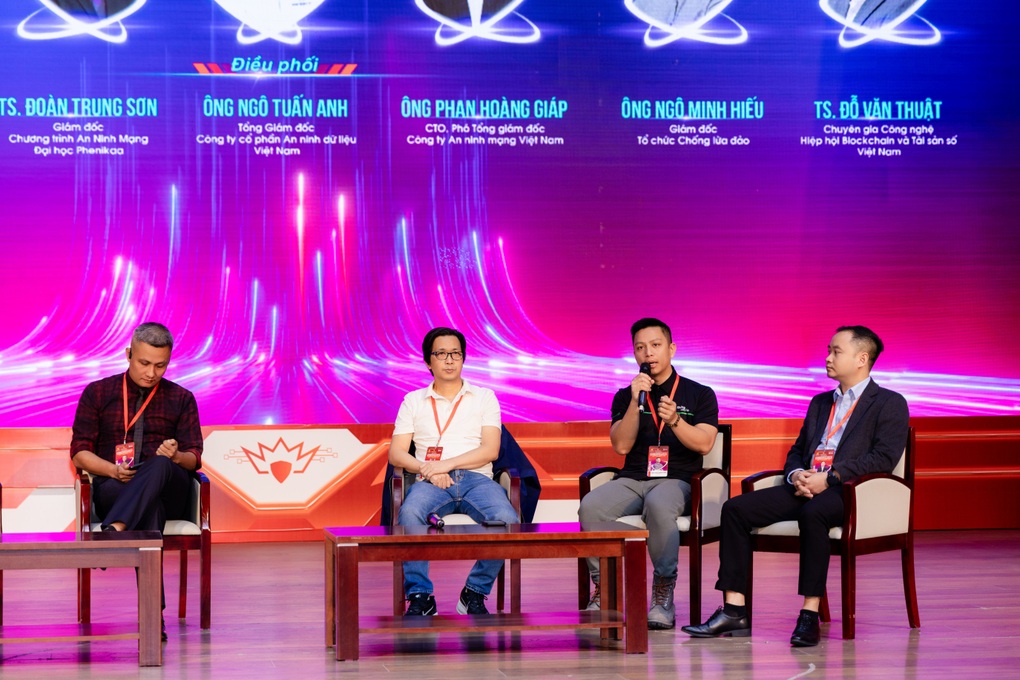
Experts in the discussion session (Photo: NCA).
The story outlines a terrifying reality: Artificial Intelligence (AI) has officially become a weapon of psychological warfare.
These are no longer isolated scams. Mr. Ngo Tuan Anh, General Director of Vietnam Data Security Joint Stock Company, said that in just one year, the number of AI-based phishing attacks has increased 20 times.
Why is AI so dangerous?
Colonel Dr. Nguyen Hong Quan, Head of the Department of Data Security and Personal Data Protection, National Cyber Security Association, said that deepfake technology now only needs about 30 seconds to imitate a human voice.
Sharing the same view, Mr. Ngo Minh Hieu, Director of the Anti-Fraud Organization, shared that cybercriminals today do not necessarily have to be outstanding hackers. Now, they can hire specially designed AI tools.
“There is now an entire underground market where AI is being adapted for criminals and sold in monthly packages just like ChatGPT users pay for.
For just $200-300 a month, anyone can own an AI tool that automatically compiles scam scripts, screens victims, and even creates viruses containing malicious code like ransomware,” Mr. Hieu shared.
A lucrative bait for hackers
One of the fiercest fronts in the AI war is digital identification (eKYC). Vietnam currently has up to 27 million accounts opened with electronic identification. This is a "fat bait" in the eyes of hackers.
Mr. Phan Trong Quan, Head of Information Security Assessment Department of VNPT Group, explained that criminals no longer use rudimentary tricks such as pasting ID numbers or QR codes on fake documents. Now, they apply deepfake technology to be able to copy the identification part.
The most sophisticated method is the "Man-in-the-Middle" attack. When the user performs video authentication such as turning his face or reading commands, the hacker will stand in the middle to be able to interfere with the transmitted data.
“They insert pre-prepared deepfake videos, replacing the real data stream of the user to bypass the authentication. The banking and financial system will “see” a fake face but believe it is real,” Mr. Quan warned.

According to Mr. Vu Duy Hien, Deputy Secretary General of the National Cyber Security Association, students are the vanguard force on the front line of protecting national digital sovereignty (Photo: NCA).
The only solution to machine-speed attacks is to use a “shield” that also operates at machine speed. Experts say this is a war with AI.
Mr. Phan Trong Quan revealed how VNPT is re-arming AI for defense. Instead of just analyzing facial images, VNPT's system uses AI to detect unusual behavior.
The technology is based on behavioral biometrics – analyzing tiny details that humans can't perceive, but AI can.
AI will analyze how users hold the phone. A real user will have natural shaking and movement. At the same time, the way the user's fingers interact with the screen will create different heat zones. AI will learn this habit to differentiate between real people and bots.
All this data is fed into a “machine learning engine” that uses neural networks. If the AI detects that current behavior is unusually different from historical data, it will block the account, locking the trading session before any damage is done.
The weakest factor is people
However, even the strongest AI “shield” becomes useless if humans open the door to enemies.
Experts agree: People are the weakest link in any defensive organizational model.
Mr. Hoang Manh Duc, Head of the System Security Research Group at FPT University, said that the "high wall, deep moat" defense model is outdated. The era of Cloud and IoT requires a new strategy: "Zero Trust".
The philosophy of Zero Trust is that we will not trust any connection, any device, whether internal or external, all must be very strictly authenticated.
But technology is only part of the equation. Nguyen Duc Duy, Senior Solution Engineer, Huawei Vietnam, stressed the importance of immutable backups – that is, they cannot be overwritten, deleted, or modified – combined with completely isolated partitions to ensure data can always be recovered after a Ransomware attack.
Dr. Doan Trung Son, Director of the Cyber Security Program at Phenikaa University, pointed out that Vietnam's problem is the lack of "cyber security culture".
This culture is not purely a technology issue, it is a people issue and must be implemented from the top down, starting with the leadership awareness.
The fight to protect Vietnam’s cyberspace is a new front in the cause of defending the Fatherland. To win, Vietnam is taking action on all three pillars: Technology, law and most importantly, people.
Source: https://dantri.com.vn/cong-nghe/ai-dang-tro-thanh-vu-khi-chien-tranh-tam-ly-cua-toi-pham-mang-20251115171410658.htm



![[Photo] Prime Minister Pham Minh Chinh meets with representatives of outstanding teachers](https://vphoto.vietnam.vn/thumb/1200x675/vietnam/resource/IMAGE/2025/11/15/1763215934276_dsc-0578-jpg.webp)
![[Photo] General Secretary To Lam receives Vice President of Luxshare-ICT Group (China)](https://vphoto.vietnam.vn/thumb/1200x675/vietnam/resource/IMAGE/2025/11/15/1763211137119_a1-bnd-7809-8939-jpg.webp)

![[Photo] Panorama of the 2025 Community Action Awards Final Round](https://vphoto.vietnam.vn/thumb/1200x675/vietnam/resource/IMAGE/2025/11/15/1763206932975_chi-7868-jpg.webp)

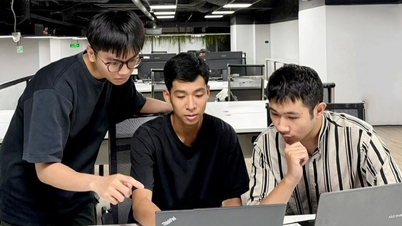

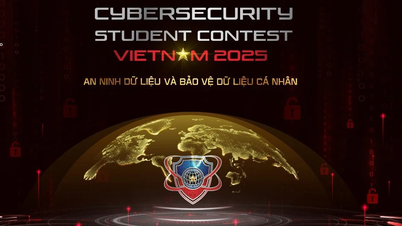








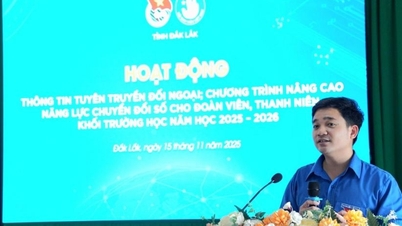









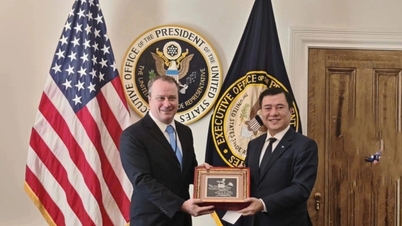

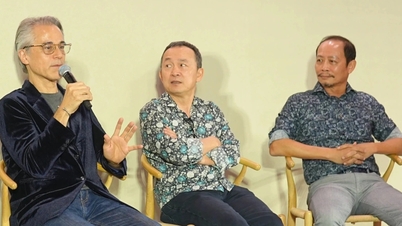

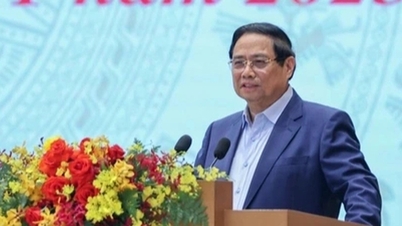







































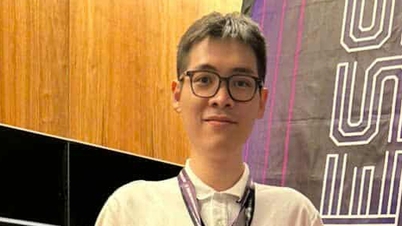

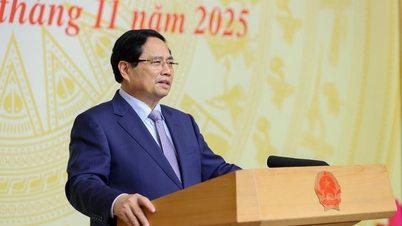







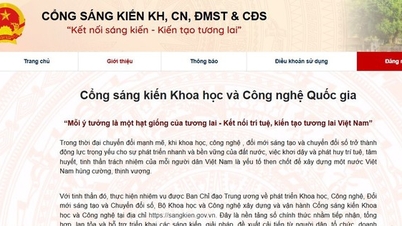






















Comment (0)